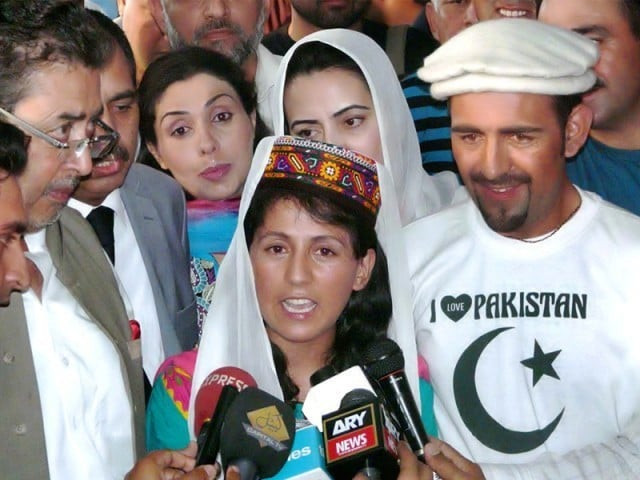Since 1921 Everest has had over 4,500 climber visitors from over eighty nations.
And while the first female ascent of the mountain was in 1975 by Japanese mountain-climber, Junko Tabei and the first Pakistani to scale the Everest was a man by the name of Nazir Sabir, on May 19, 2013 twenty two-year old Samina Baig set a new record for the country as she ascended to 8,848 meters and became the first Pakistani woman to reach the roof of the world.
Much is remarkable about Samina Baig’s story.
She is only twenty-two. She was the first person to climb Chaskin Sar (a peak above 6,000 meters which is now named after her). She managed to secure Rs10 million from funders in New Zealand for this climb (after being turned down by the Pakistani government). Upon reaching the top, she chose to deploy the Pakistan flag alongside the Indian flag (deployed by twin sisters and fellow climbers from India) in a symbolic gesture that puts all our politicians and leaders to shame.
But most impressively, Samina chose to dedicate her expedition to a higher cause – for the confidence and empowerment of Pakistani women, in particular those who come from the most remote regions of the country, like Samina herself.
However, it would not be a stretch to say that Samina was not the only one to create history at 7:40am on May 19.
Her brother Mirza Ali, who beamed with pride next to his sister while she gave press interviews, is an equally remarkable component of this tale.
When I first heard of Mirza Ali’s enthusiasm and staunch support for his sister’s mission I was reminded of Aung San Suu Kyi who once said,
“In societies where men are truly confident of their worth, women are not merely tolerated but also valued.”
Generally speaking, I have long regarded this quote as not applicable to the majority of Pakistan or its men. Too often we Pakistani women have to justify our goals and plans to the men in our life - as if seeking their permission is a religious or cultural requirement and a necessary means of validating our dreams and ambitions.
But men, like Mirza Ali, who are able to sit down, kick back and relax while the women in their life run (and sometimes even steal) the show, are what Pakistan needs more of.
It is the stories of men like Mirza Ali, a brother who turned back at 8,600 metres, just 248 metres shy of conquering the summit, to let his sister take the lead and declare to the world that women are just as capable as men- that need to be told. Stories of men like those who gun down young girls because they are frightened and threatened by her relentless pursuit of education or those who wield their dominance over women through violence and sexual assault, should be shunned and condemned so as to serve as a lesson to those men who choose to be inspired by them.
Muhammad Ali Jinnah, at the inception of Pakistan, said
“No nation can ever be worthy of its existence that cannot take its women along with the men. No struggle can ever succeed without women participating side by side with men”.
Yet a recent United Nations study shows that Pakistan (compared to the rest of South Asian continues to have the least amount of women, a meagre 22%, participating in its labour force. Surely we don’t need reminding that there is prosperity for a nation through empowerment of its people – a term inclusive of the female gender.
Although too many of our women continue to be subjugated to economic hardship and social exclusion, Samina Baig and Mirza Ali have come to the scene to set a new precedent – one we should not just admire from afar but seek to adopt and emulate within our own relationships and family dynamics.
The sibling-duo hail from Shimshal Village in the Hunza Valley, one of the most remote regions in Pakistan and yet the siblings maintain that their village has a one hundred percent literacy rate for females. Hearing Samina speak in her soft yet confident manner, in articulate Urdu and English, under the proud gaze of her older brother, I believe that.
And so when Mirza Ali sends a message to his country-men “to encourage your sisters and give them confidence to scale the peak” what he himself embodies is the very spirit that Pakistan’s founding father embodied.
Read more by Maria here or follow her on Twitter @mariakari1414



COMMENTS
Comments are moderated and generally will be posted if they are on-topic and not abusive.
For more information, please see our Comments FAQ